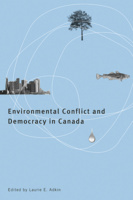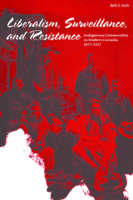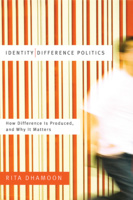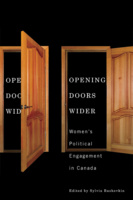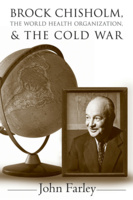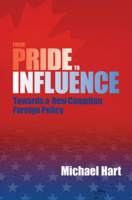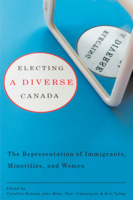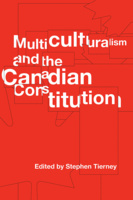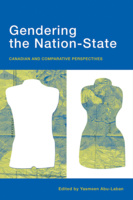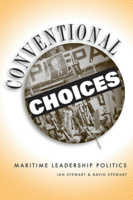Canada's Voice
The Public Life of John Wendell Holmes
Canada’s Voice is the first comprehensive biography of a diplomat and scholar who shaped foreign policy during Canada’s golden age as a middle power.
Environmental Conflict and Democracy in Canada
This path-breaking collection brings together environmental politics and democratic theory to reveal the deficits of citizenship and how democracy must be extended to achieve a socially just, ecologically sustainable society in Canada.
Empires and Autonomy
Moments in the History of Globalization
This collaborative study explores moments in the history of globalization and autonomy to provide insights into changes overtaking the contemporary world.
Liberalism, Surveillance, and Resistance
Indigenous communities in Western Canada, 1877-1927
This book explores the means used by government officials, police officers, church representatives, and ordinary settlers to facilitate and justify colonization, their effects on Indigenous economic, political, social, and spiritual lives, and how they were resisted.
Surveillance
Power, Problems, and Politics
This book examines surveillance as both cause and effect of social and political problems.
Identity/Difference Politics
How Difference Is Produced, and Why It Matters
Identity/Difference Politics offers a new direction for the study of identity/difference, one that moves beyond liberal multiculturalism’s preoccupation with culture.
Opening Doors Wider
Women's Political Engagement in Canada
This book asks whether the doors to women’s participation in Canadian public life are more open than in the past and probes how they can be opened further.
Language Matters
How Canadian Voluntary Associations Manage French and English
Canadian voluntary associations have proven that they can effectively manage bilingualism -- this book shows how and why.
The Paradoxes of Peacebuilding Post-9/11
What kind of peace is possible in the post-9/11 world? Is sustainable peace an illusion in a world where foreign military interventions are replacing peace negotiations as starting points for postwar reconstruction? Grappling with these questions, this book presents six provocative case studies authored by respected peacebuilding practitioners in their own societies.
Renegotiating Community
Interdisciplinary Perspectives, Global Contexts
Using original case studies to show how a range of communities deal with the forces of globalization, this book redraws the conceptual maps through which community, globalization, and autonomy are understood.
Global Ordering
Institutions and Autonomy in a Changing World
This innovative, interdisciplinary work explores key institutional fault lines between the tectonic plates of globalization and the insistent demands for individual and collective autonomy.
Contributing Citizens
Modern Charitable Fundraising and the Making of the Welfare State, 1920-66
A social and political history of Community Chests, and the development of Canada's welfare state.
Cautious Beginnings
Canadian Foreign Intelligence, 1939-51
A convincing portrait of Canada's active role in Second World War intelligence gathering.
Brock Chisholm, the World Health Organization, and the Cold War
This is the story of a man and an institution. A world-renowned psychiatrist and first director-general of the World Health Organization, Brock Chisholm was one of the most influential Canadians of the twentieth century, yet is little-known today.
Emerging Technologies
From Hindsight to Foresight
Addresses the ethical, legal, and social dimensions of emerging technologies and assesses their social and policy implications.
From Pride to Influence
Towards a New Canadian Foreign Policy
From Pride to Influence brings Canadian foreign policy into the twenty-first century.
Electing a Diverse Canada
The Representation of Immigrants, Minorities, and Women
Covering eleven cities as well as Canada’s Parliament, this book presents the most extensive analysis to date of the electoral representation of immigrants, minorities, and women in Canada.
The OECD and Transnational Governance
A timely and insightful volume, The OECD and Transnational Governance fills an important gap in the literature on global governance.
The Provinces and Canadian Foreign Trade Policy
A fresh analysis of the evolving role of the provinces in Canadian foreign trade policy.
Indigenous Diplomacy and the Rights of Peoples
Achieving UN Recognition
With a focus on international law, Henderson analyzes what the UN Declaration of the Rights of Indigenous Peoples means for Indigenous peoples around the world and for Canada.
For Future Generations
Reconciling Gitxsan and Canadian Law
Dawn Mills passionately shows how reconciliation can be achieved between Canada’s First Nations and the various levels of government.
Multiculturalism and the Canadian Constitution
The essays illustrate how deeply multiculturalism is woven into the fabric of the Canadian constitution and the everyday lives of Canadians.
Criminal Artefacts
Governing Drugs and Users
By looking curiously on the criminal addict as an artefact of criminal justice, this book asks us to question why the criminalized drug user has become such a focus of contemporary criminal justice practices.
Bringing the Passions Back In
The Emotions in Political Philosophy
Combining intellectual history and political theory, the contributors to Bringing the Passions Back In illuminate the place of emotions in modern liberal and democratic politics.
Gendering the Nation-State
Canadian and Comparative Perspectives
Gendering the Nation-State explores the gendered dimensions of a fundamental organizational unit in social and political science – the nation-state.
Aboriginal Self-Government in Canada, Third Edition
Current Trends and Issues
An interdisciplinary guide for learning about government policy and the aspirations of Canada’s Aboriginal peoples.
The Comparative Turn in Canadian Political Science
This volume is the first sustained attempt to describe, analyze, and assess the “comparative turn” in Canadian political science.
Navigating Neoliberalism
Self-Determination and the Mikisew Cree First Nation
This remarkable book argues that neoliberalism, which drives government policy concerning First Nations in Canada, can also drive self-determination -- including the Mikisew First Nation, which successfully exploited opportunities for greater autonomy and well-being that the current political and economic climate has presented.
Conventional Choices?
Maritime Leadership Politics, 1971–2003
Conventional Choices examines twenty-five different leadership elections over thirty-two years in three of Canada's maritime provinces to explore the backgrounds, attitudes, and motivations of those who select party leaders.


